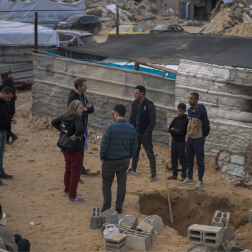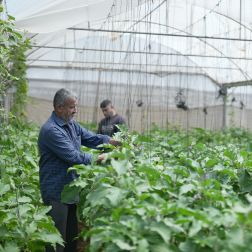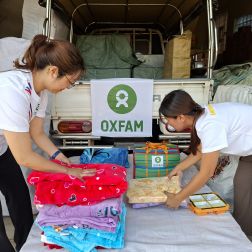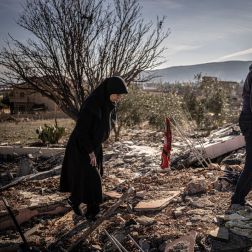- 4 mins read time
- Published: 21st September 2017
Hope in a year of unprecedented disaster
This year has been one of unprecedented disasters. From drought to famine, hurricanes to war, the global news cycle has been dominated by heart-breaking stories of people caught up in unimaginable situations.
But in the midst of all this, our life-saving and life-changing work is providing hope thanks to the ongoing generosity of our supporters and the Irish government.
Right now, we’re providing clean water, sanitation and shelter to thousands of Rohingya people who have fled to Bangladesh. Over 400,000 people have crossed the border from Myanmar in the last four weeks, doubling the number of people seeking refuge in the south east of the country.
Homeless and hungry, people are arriving physically and emotionally traumatised, in desperate need of essentials like water and food and a place to lay their heads. Women, children, older people and those with disabilities are especially vulnerable. And the situation is even more desperate due to recent heavy rains in Bangladesh, with some of the settlements on hillsides and roads at risk from mudslides.
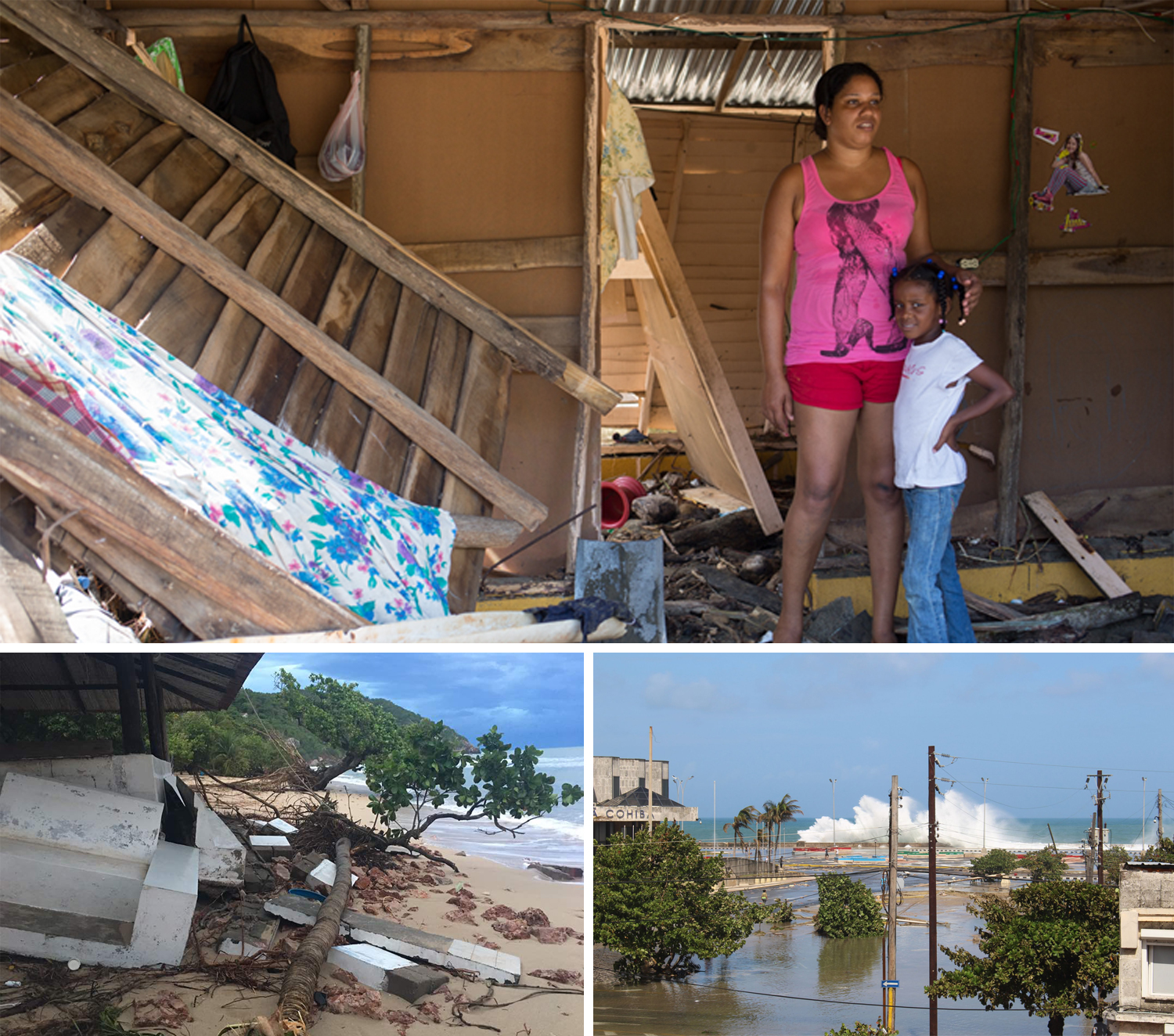
(Top) Dilenia Florimón together with her daughter in the middle of what remained of her house, two days after Hurricane Irma struck the community of Boba in the province of María Trinidad Sánchez, Dominican Republic. Photo: Fran Afonso / Oxfam. (Bottom-left) Litter along the beach of Corniers Plage near Cap Haitien, the morning after Hurricane Irma hit. Photo: Jean Bernard Simmonet. (Bottom-right) A powerful wave crashes into the already-flooded Vevado district of Havana during Hurricane Irma. Photo: Erislandys Igarza / Oxfam.
Elsewhere, in the Caribbean, the clean-up after Hurricane Irma – one of the most powerful storms in a decade – was hampered by the onslaught of Hurricane Maria, which followed when many of the islands were still reeling from Irma. The devastation wreaked by Irma claimed the lives of 38 people across the Caribbean islands, with ten deaths in Cuba alone. The islands’ tourism, energy and agricultural sectors have been severely impacted, with the northern coast and the eastern and central regions bearing the brunt.
In all, around two million Cubans had to leave their homes and 50,000 seek refuge at evacuation centres. Many people, whose livelihoods have been disrupted, have since returned to their homes to find them destroyed. Haiti and the Dominican Republic, where Oxfam is on the ground, were also badly hit by flooding and high winds.
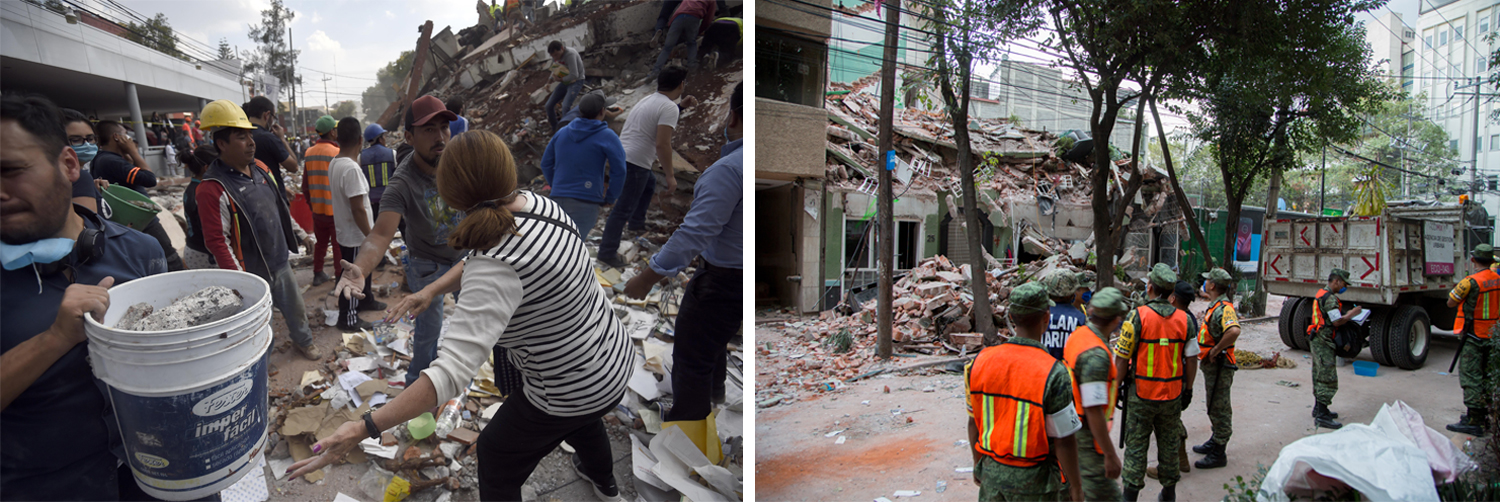
(Left) Rescuers, firefighters, policemen, soldiers and volunteers remove rubble and debris from a flattened building in search of survivors after a powerful quake in Mexico City.Photo: Alfredo strella/AFP/Getty Images. (Right) At least 230 people total have been killed across the region, and rescue crews continue to search for survivors. Photo: Karl Byrnison/Oxfam México
Tragically, this appalling humanitarian disaster was quickly followed by another when a 7.1-magnitude earthquake struck Mexico City and the neighbouring state of Morelos. This was the second earthquake to hit the country in less than two weeks. Over 230 men, women and children have been killed, hundreds more have been injured and buildings, including hospitals and schools, have been reduced to rubble.
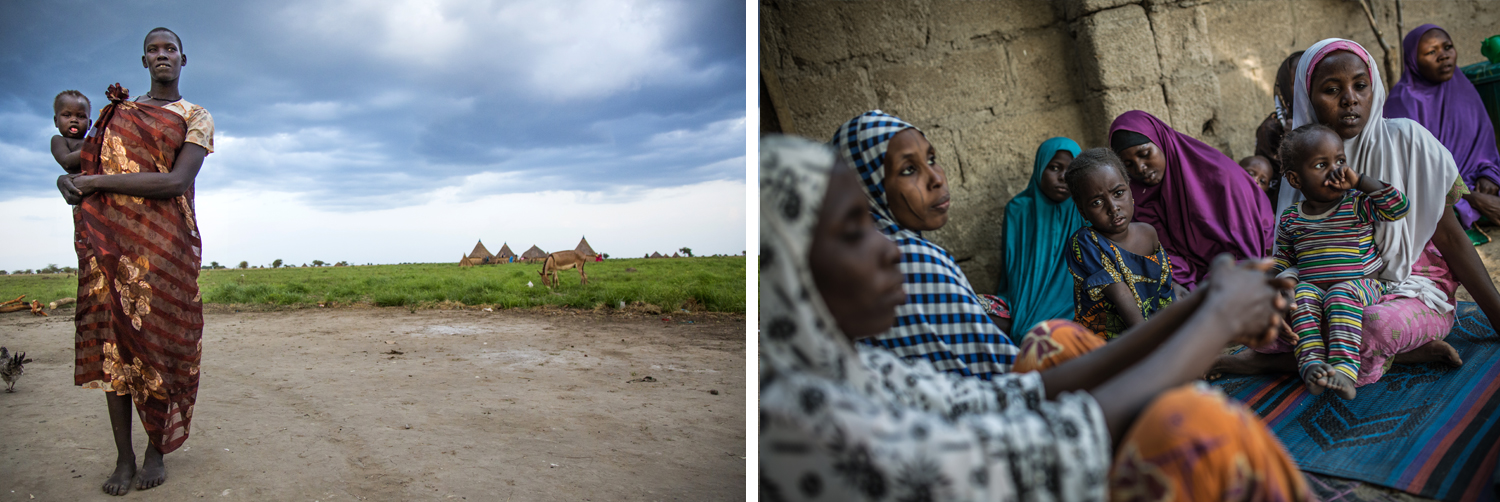
(Left) Mother-of-four Tahrir (25) holds her baby in Padding, in Jonglei, South Sudan. Tahrir, who lives with her husband, mother-in-law and children, used to have a farm and cattle. Then the war started and her cows were stolen. She says: “I can’t buy food. Now we survive on what we find in the wild.” Photo: Albert González Farran/Oxfam. (Right) These mothers and children are part of a large group of refugees who fled violence in their villages in recent months. More than 2.6 million people in Nigeria, including 1.5 million children, fled their homes for safety. Now they find themselves facing new dangers such as hunger and malnutrition. Photo: Pablo Tosco/Oxfam.
These terrible crises are quite rightly dominating the headlines. However, a disaster of epic proportions continues to unfold in the background. Across northeast Nigeria, Somalia, South Sudan and Yemen, 30 million people are facing starvation. The primary driver of these hunger crises is conflict, although in Somalia it is drought. In February, famine was declared in South Sudan and while it has since been halted, people are still living on the brink.
So far 2017 has brought terrible pain to many people. But we are there to help in this time of need. Oxfam is on the ground in all of the countries mentioned above as well as in countless more.
When emergency strikes, we’re there, assessing the damage and providing what’s needed most. Whether it’s clean water and toilets to prevent the spread of deadly diseases or other essentials like food, shelter or information, we make sure people hit by disaster are safe, protected and have dignity.
We couldn’t do this without you and we need your help now more than ever. Let’s bring hope to even more people.
Please give what you can, today:
Thank you.
